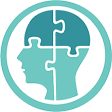We all experience moments of trouble or difficulty in our lives, triggered by stress, trauma or dramatic circumstances. Invariably, though, we manage to deal with them and push past the darkness of anxiety and obsession, and find peace and light once more.
But for people with obsessive-compulsive disorder (OCD), there is no light at the end of the tunnel. The feeling of having no control over their life can be disempowering and debilitating. They often exhibit excessive and all-consuming worries and illogical doubts and superstitions that dictate their daily routine, eliminating logical or sensible control over their lives.
What is OCD?
OCD is a potentially damaging and crippling type of anxiety disorder that occurs in the brain and is caused by a certain recipe of factors leading to a constant incorrect processing of information. People suffering from OCD are caught up in an endless cycle of repetitive actions and thoughts, they are infinitely stuck on a trying to settle a certain urge.
These urges could stem from many things…
- Fear of being contaminated by germs or dirt or contaminating others
- Fear of losing control and harming yourself or others
- Intrusive sexually explicit or violent thoughts and images
- Excessive focus on religious or moral ideas
- Fear of losing or not having things you might need
- Order and symmetry: the idea that everything must line up “just right”
- Superstitions; excessive attention to something considered lucky or unlucky
For years, OCD went unrecognized by medical experts due to the fact that many of the afflicted did not report on their repetitive urges and actions and failed to seek help. Alternatively, some of the OCD symptoms were erroneously confused with those of perfectionism, which is a natural and benefic psychological attribute in some people.
While compulsive perfectionists hold themselves to a higher performance standard and are especially organized in their work and everyday activities, the rituals and obsessions of an OCD sufferer become so disturbing that they can interfere with every day activities and stop them from functioning as responsible members of society.
Possible Causes of Obsessive- Compulsive Disorder
Researchers are still searching for root causes that can lead to the onset of OCD in both children and grown-ups. Overall, it is believed that a combination of environmental influences and several neurobiological factors affecting the cognitive process can be to blame.
Chemical imbalance of serotonin and brain dysfunctions
As many studies have indicated, patients have responded to medication that was targeting serotonin levels in the body, suggesting a neurobiological component to the disease. Certain brain scans called PET scans have shown unusual patterns of brain activity in OCD patients, differing from those of people suffering from other mental afflictions.
Genetic markers
Although not 100% proven scientifically, OCD can have some genetic causes as well. Early onset of the disorder has occurred in patients with family history in obsessive spectrum diseases, such as trichotillomania, body dysmorphic disorder, hypochondriasis, etc.
Some studies suggest that if a person gets the first OCD symptoms in adulthood, chances of transmitting the disease markers to their offspring are minimal. If, on the other hand, the onset happened in childhood, the sufferer is likely to transmit the disease further on their genetic line.
Symptoms of OCD and How They Impact Every Day Life
OCD sufferers have a series of obsessions and compulsions that cannot be controlled without specialized help. In general, these obsessions resulting in repetitive activities trigger feelings of doubt, fear, even disgust in the sufferer.
A few of the most common manifestations associated include:
- Excessive hand washing or cleaning
- Double-checking of things such as light switches, appliances, and locks
- Checking in on loved ones to make sure they’re safe
- Avoiding public spaces or eateries
- Counting, tapping, repeating certain words, or doing other senseless things to reduce anxiety
- Ordering or arranging things “just so”
Hoarding items, ranging from junk to pets to clothing or books
Praying excessively or engaging in rituals triggered by religious fear
In general, an OCD afflicted person executes these activities in a fixated, uncontrollable manner, but are very aware of their obsession.
Treatments and Therapy Solutions
There is no accredited cure for obsessive-compulsive disorder but a few methods of treatment and therapy have been shown to provide relief, allowing patients to lead seemingly normal lives.
Aside from prescriptions treatments of antidepressants and serotonin inhibitors, two therapy techniques have been highly effective for OCD sufferers.
Cognitive Behavioral Therapy (CBT)
Having no associated risks or side effects, Cognitive Behavioral Therapy (CBT) remains the remedy of choice for helping OCD patients. It taps into two behavior techniques: cognitive therapy that analyzes the way patients think, and behavior therapy that looks at how the thinking affects their actions.
This treatment provides ways to manage obsessive thoughts the patient may have. CBT also looks to teach the patient how to make sense of these repetitive thoughts and respond in a healthy manner to prevent them from interfering with daily life.
Exposure and Ritual Prevention (ERT)
ERT is a technique that alternates both cognitive and behavioral approaches to treat patients who are not responding well to CBT. It consists of a prolonged confrontational episode that can last up to two hours, in which the patient is basically confronted with an anxiety triggering situation. The goal is to create enough exposure to the triggering factor so as to prove to the patient that the disastrous consequences he or she feared will not occur.
Most therapists will use it in both individual and group treatments, extending the therapy to the family environment of the patient. Repeated episodes of this nature can decrease distress response, and has been shown to significantly reduce stress and obsessions associated with OCD.
New Scientific Breakthrough: Possible Treatment Found
A recent study conducted by North Carolina’s Duke University scientists has shown real progress in determining the factors that lead to the onset and treatment of OCD.
The tests consisted of breeding genetically altered lab mice that exhibited behaviors similar to OCD. The tested mice were missing a key protein called Sapap 3, which helps connect neurons and regulate the activity of several receptors, including mGluR5. Tests have shown that this particular mGluR5 receptor, lacking the limiting power of the Sapap 3 protein, was the one encouraging obsessive compulsive actions. As a result, medication that blocks mGluR5 activity was proven to have an almost instant effect, alleviating the OCD symptoms.
Although debilitating, OCD can be alleviated and managed in patients seeking help. If you or someone close to you has been exhibiting symptoms, get in touch with a certified professional to start exploring tailored therapy solutions. Set up a free 20-minute consultation with Austin Bridges Therapy today.








